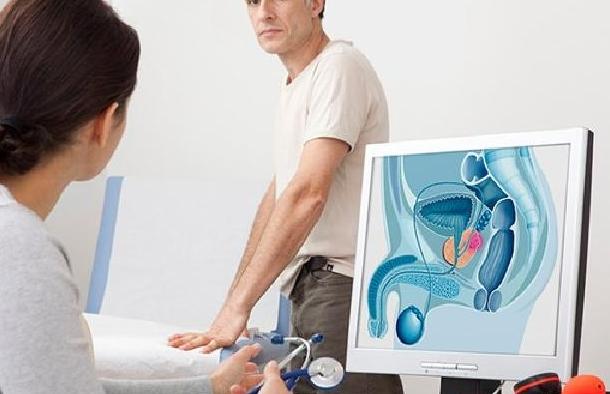Do not Panic about Seminal Vesiculitis Attack! Some Nursing Methods in Life Can Help!
Date:2022-11-24 click:0
Many men feel difficult to talk about seminal vesiculitis after they have been troubled by it, and some patients choose not to go to the hospital, leading to an aggravated disease. This has a significant impact on their health. No matter what disease occurs to men, they should always seek timely medical treatment to reduce harm to the body. Then, what are the treatment methods for seminal vesiculitis in case of its attack? How can men care for themselves in life?

The main symptoms of seminal vesiculitis are usually dominated by frequent, urgent, and painful urination, urethra burning sensation, and other urethral symptoms. Sometimes, the patient's semen is pink or red or with blood clots, and patients will show blood in the urine. Some people have a low sex drive, seminal emission, premature ejaculation, etc. Don't panic about these symptoms, but seek medical help immediately.
What treatment method can seminal vesiculitis patients choose?
1. General treatment
Patients usually can choose medicine treatment in the early stage of seminal vesiculitis. Patients in daily life should do a good job of daily nursing work, having a good therapeutic effect. After seminal vesiculitis, patients should pay attention to the combination of work and rest, avoid overwork, and eat more fiber-rich foods to promote defecation. When necessary, they can take defecation medicine appropriately to keep the stool smooth, which benefits the treatment of seminal vesiculitis.
2. Antibiotic therapy
Antibiotics can be considered for treatment in the acute attack of seminal vesiculitis. Oral medication will significantly improve the patient's symptoms after 1 to 2 weeks. If it is chronic seminal vesiculitis, the medication time will be longer than four weeks. Although the effect of antibiotic treatment is relatively apparent, patients must use the medicine under the guidance of professional doctors to avoid blind use or even counterproductive effects.
Patients who do not want to use antibiotics can choose the traditional Chinese medicine Diuretic and Anti-inflammatory Pill, which can promote blood circulation, remove blood stasis, move Qi and relieve pain, effectively eliminating inflammation. Its effects have been proven in practice in treating seminal vesiculitis, prostatitis, and other urinary diseases.
3. Local treatment
Local treatment can be used to relieve symptoms. In practice, the berberine ion penetration method can be used to treat this disease with good effects. Patients can also use warm water for bathing, keeping the body fresh, activating blood, and removing stasis.
How can patients with vesiculitis take care of themselves to prevent vesiculitis?
1. Control frequency of life
After seminal vesiculitis, patients must control the frequency of their sex life. Frequent sex can put male reproductive organs in a long-term state of congestion, which easily aggravates the symptoms of seminal vesiculitis and is not conducive to the recovery of the disease.
2. Light diet
In terms of diet, patients should avoid spicy and stimulating foods, eat more nutrient-rich food, and try to cook food with less oil and salt, such as boiling, steaming, blanching, etc. The most important thing is to stay away from alcohol and tobacco.
3. Be active
Keeping a certain amount of exercise in daily life is conducive to promoting the blood circulation of the body, which is helpful for recovery. At the same time, it can enhance the comprehensive quality of the body and prevent the emergence of other diseases.
4. Avoid sitting for a long time
The adverse effect of sitting for a long time on men's health is significant, especially for men who keep sitting in the office. It is recommended to get up and have an activity every 40 minutes, which is conducive to local blood circulation and can reduce the oppression of seminal vesicles.
5. Build confidence
No matter the face of any disease, a good mind is the most critical step to overcoming the disorder. Patients should correctly understand the condition, establish confidence, and adopt a positive attitude to face the disease.
Recommended Readings:



